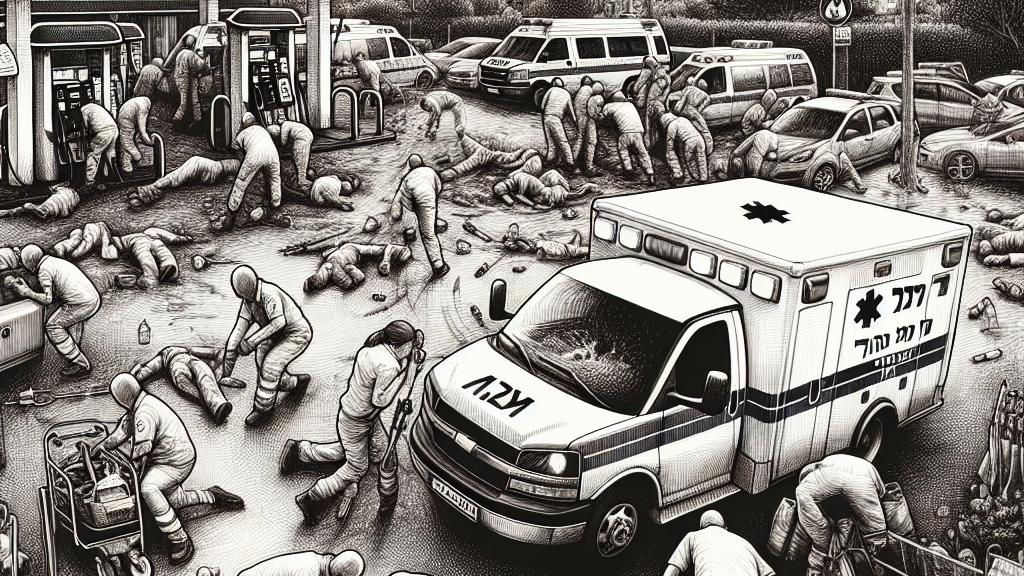Blood on the Streets: Chaos in Holon as Stabbing Sends Shockwaves through Israel!
Overview
- A shocking stabbing attack in Holon, Israel, left one woman dead and three others injured.
- The assailant, a Palestinian man, struck during the morning rush hour near busy locations.
- Israeli police swiftly neutralized the attacker, raising concerns over public safety and rising tensions.

The Incident in Holon
On August 4, 2024, the city of Holon near Tel Aviv experienced a harrowing stabbing incident in which a Palestinian attacker targeted multiple individuals during the morning rush hour. Witnesses described a scene filled with chaos as screams echoed from a gas station and nearby park, where the assailant launched his attack. A 66-year-old woman tragically lost her life, while three others sustained serious injuries, including two elderly individuals fighting for their lives in the hospital. This violent encounter has deeply unsettled the community, reminding residents of the fragile nature of safety in their daily lives amidst ongoing regional tensions.
Response from Authorities
In the aftermath of the attack, Israeli police acted quickly to secure the area and assist victims. Their response involved deploying numerous officers to conduct extensive searches, reassuring the public about their safety. The 34-year-old attacker was shot and neutralized at the scene by law enforcement, preventing further harm to innocent civilians. Emergency medical personnel arrived promptly, transporting the injured to local hospitals where doctors began urgent treatment. This swift police action reflects the heightened vigilance necessitated by the ongoing threat of violence that has persisted in the region, mandating robust measures to uphold public security.
The Broader Context of Violence and Conflict
This incident is not an isolated occurrence but rather part of a larger narrative of violence that plagues the Israeli-Palestinian conflict. Historical grievances, territorial disputes, and recurring violence have created a cycle of mistrust and fear among both populations. The attack in Holon resonates with international incidents, such as the tragic stabbing event in Southport, UK, demonstrating that senseless violence can occur anywhere, impacting innocent lives. The urgent need for dialogue, understanding, and conflict resolution is more crucial than ever to foster peace and coexistence in a region marked by unrest. Recognizing the human cost of such attacks is essential in the pursuit of healing and reconciliation.

Loading...